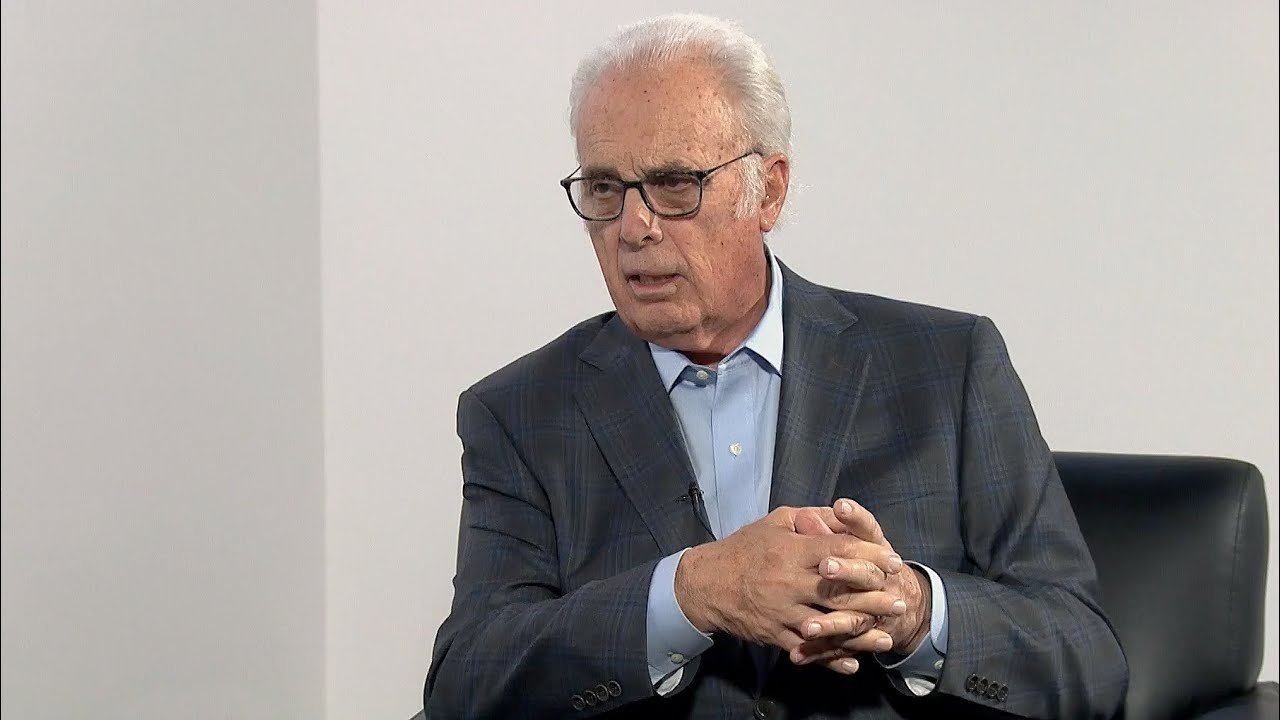Thomas: You know, what is secular? Music is music. So if there’s secular music, there’s something called Christian music? Music is math, it’s notes, it’s sounds and silences and rhythm and beat. One isn’t secular, one is Christian, so I’m not quite sure what people mean when
They talk about secular music versus — if you mean modern contemporary, the top 15, 20 songs — I was at an event recently and somebody read out the top 20 songs of today, of this past few weeks, and I’ve never heard of any of them or the singers.
I was completely in the dark. But what do you mean by secular music? Music is music. So, if we have a — Mike, you’re the theologian here. If we have a doctrine of common grace — this is a Dutch thing. You would know all about this. Godfrey: Yeah.
I suspect there are several things hiding in this question. One would be that the question’s probably not just about music, but about words. So that that adds a significant dimension. Then you don’t just have sounds but you have meanings.
And, then I think also the whole question, “Are there styles of music that are, in one way or another, inimicable to Christian piety or practice. That’s a question for you. But, you know, some of us like opera.
I won’t, you know, get into who that might be, but those of us who might like opera would not think that we ought to have opera in the church service. So you can think of a kind of music that you enjoy that you would still say is inappropriate for the worshiping community.
Horton: Yeah, I think, when it comes to style, one of the big questions is, “Is this helping the Word of Christ dwell in us richly? And is the music what we’re thinking about or is the Word of Christ what we’re thinking about?”
And music can be very powerful, as Calvin realized over Zwingli, very powerful in a good way for instilling the Word of Christ. But when it comes to common grace, I agree with you, Derek. There is no Christian music or secular music.
Some of the Christian music out there is just as bad as some of the secular music out there, so we just have to have discretion whatever we’re listening to. Thomas: This is, you know, this is a sensitive question for me.
So, my first memory, you know, it’s one of my first memories, is as a two-year-old sitting on my grandfather’s knee — he died when I was five — sitting on my grandfather’s knee, listening to Pacini’s ‘Laboum,’ and it’s a vivid memory in my head, and
It instilled in me from that moment onwards, just a passionate love for classical music and opera. So he died and he left all of his records, and he had about 500 LPs, and he was very discerning, and he only bought the sort of best, and so he left them to me.
So the week before he died, I’m five years old, he brings me into his bedroom, he died at home, he died of cancer, he was ill for a year or so. And, he told me, “I’m leaving you” — because there were four children.
He could already discern — and my younger brother was three, my older brother was seven, no, nine, and my sister was seven — but he could already discern which of these four would take care of his records.
And, he decided it was me, and I actually didn’t inherit them until I was 15, and when I did, I loved them. I treasured them. I played them on an old gramophone record that you had to lift up the lid, you know,
And it was wider than the player, so you couldn’t put the lid down while it was still playing and there was one little, tiny mono speaker, but it was the state of the art. It was cutting edge, and this was in the ‘60s. And then — Godfrey: Did you have to crank it?
Thomas (Continued): No. We had electricity, but, just about. But I’m saved when I’m 18 and within probably a couple of months of being saved, I meet this guy. He came into my life for maybe six months and then disappeared, and I don’t know what
Happened to him, but he mentored me for six months and he told me I needed to get rid of all my records. So, the next day, I took them to the market, and sold them all for like five dollars. And, it’s probably one of the decisions I most regret in life.
Now, what he should have said to me was, “Put them away for six months to a year and then come back, and maybe they won’t occupy quite the place in your life that they did at that time.”
Because it was a question of priority, but for him, it was a question of this is secular and this is Christian, and you need to get rid of this secular part. So that — I think that’s why I respond fairly emotionally to it. Now, the words issue, I think I’m with you.
When I heard the top 15 or 20 songs that are playing right now, and I heard some of the lyrics, because it was an address to college students, and he was making a point about how every single lyric was about sex in some form or another.
I think I’m with you from what you said this morning about not going to the movies. So we don’t listen to modern music either. That’s you and me. Godfrey: And if we listen to — the first opera I went to I was an 8th grader.
I’d never been to the opera, I didn’t know anything about classical music particularly. And I went to the opera with my mother, my father didn’t want to go in San Francisco, and heard Tosca sung by Richard Tucker, who was the reigning tenor of his day, and I fell
In love with the opera that night as an 8th grader, because it was so glorious and beautiful. But — Response, Thomas: Of course, the lyrics aren’t any better, but they’re in German or Italian so — Godfrey (Continued): That’s the point I was going to make. Yeah, exactly. Yeah, yeah, yeah.
I saw a cartoon in the New Yorker recently that said, you know, all of these opera plots really need to be sent to a therapist, and there’s a lot to be said for that. Thomas: Like country music. Godfrey: Like country music.
Nichols: You know, we’re spending a lot of time on this question but I think it’s an important one. As I think about this question, I think it’s the broader — maybe behind it is the broader question of the Christian’s relationship to culture.
We think of music as a particular way maybe to get at our entertainment or what we hear or listen to. We’re not left without a guide. Certainly, as we think about what it means to be a Christian, how we live in the world, we have certainly biblical principles to guide us.
We think about Paul speaking of whatever is excellent, whatever has virtue. We should be thinking on these things. But here’s something I think is especially true of us as Americans. We tend to think about these kind of decisions in ethical categories only without thinking in terms of aesthetic categories.
So, we think of truth and goodness and justice. We tend to do that pretty well. We don’t always think of the beautiful and how we spend our leisure time honoring God, honoring the Creator of beauty, in terms of thinking about aesthetics.
Whether it’s what we listen to or read or watch, to think of those categories, and maybe that can help us as Christians, and we think about these things that we devote our time and our energy to, and our leisure time.
#Christians #listen #secular #music



